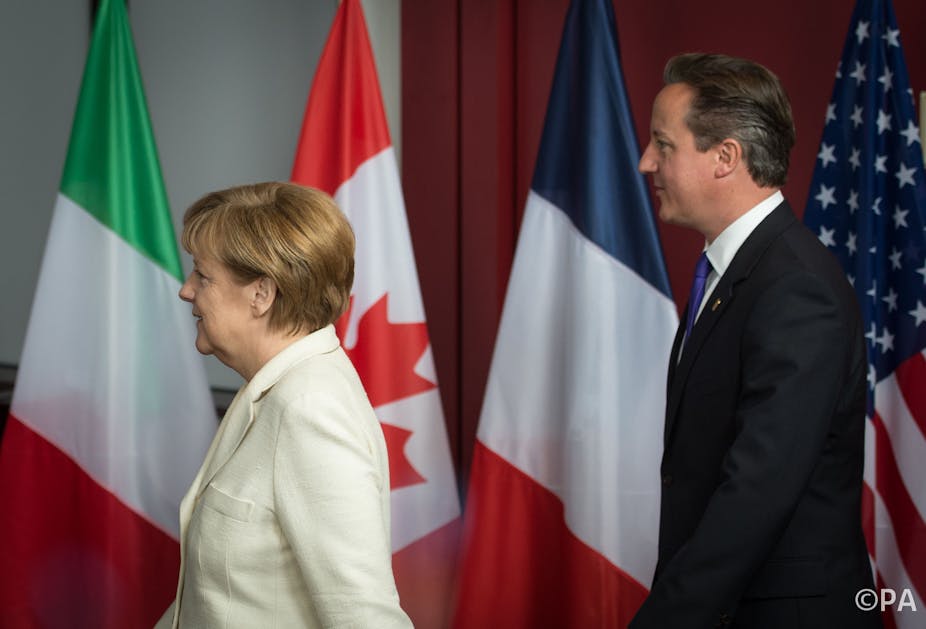Angela Merkel is a pragmatic politician. But even pragmatism has its boundaries. And David Cameron is finding out just what those boundaries are as he tries to push her for concessions on the issue of immigration.
The German chancellor is a consensualist and a listener. She coaxes and cajoles her colleagues into questioning the evidence, thinking about practical challenges and considering the wider ramifications of what they are doing. Her worldview is broadly centrist in scope and only if a position is logical, rational and politically feasible will she be open to discussing it. Only then will she act.
Cameron clearly has this in mind as he attempts to do business with Merkel now. He is desperate to change the EU’s thinking on the free movement of labour. He hopes to appeal to Merkel’s rational side by arguing that Germany also will face problems if large-scale intra-EU migration continues. But Cameron would do well to remember that even Merkel, the arch-pragmatist, will not bend over backwards to strike a deal with him.
Friends forever?
Merkel does not want the UK to leave the EU. She is an economic liberal at heart and she really does believe in the power of markets to generate wealth and prosperity. Her background in East Germany taught her much about the dangers of over-planning and over-regulating and she is well disposed to much of the economic agenda the UK pushes, even if the rather more blunt liberalism of Conservative ideologues is not her natural territory.
She does want to listen. She does want to strike bargains that benefit the UK, the EU and of course Germany. But bargains are only ever struck when consensus is found around core ideas. Instinctive friendship will mean that Germany is prepared to indulge the UK to a certain extent but Merkel is not going to make concessions that go against what she believes are wider national and European interests.
Merkel is powerful but she is not all-powerful. She leads a party (and indeed a country) that is strongly integrationist and upholds a strong commitment to the European ideal. For many, the free movement of labour across the EU is a basic principle that is simply not up for discussion. Merkel will not and cannot offer any concessions on this point and Cameron needs to recognise that.
Some of Cameron’s supporters on the backbenches seem to confuse the notion of striking a bargain with presenting what can look dangerously like an ultimatum and Cameron will not succeed that way. If he makes demands that go against the long-standing core principles of the EU, then Merkel’s willingness to listen to British politicians will soon cease. Merkel will help where she can but that shouldn’t be misunderstood as a willingness to help at all costs.
Rock and a hard place
More encouragingly for Cameron, there is still (a little) room for negotiation around the edges. Merkel’s CDU party is, for example, as worried about so-called “benefit tourism” as Cameron’s Conservative Party. There is room there for (what could well be largely symbolic) shows of unity about being tough on apparent benefit scroungers crossing borders to poach the most attractive sets of benefits. In specific areas where there is background noise, compromises and a helping hand are possible.
The problem here, of course, is that this probably won’t be enough for a lot of people who are currently disaffected with British politics. They want, thanks mainly, although by no means exclusively, to the rise of UKIP, to see much more fundamental change. In terms of immigration they want a bargain that Angela Merkel is simply never going to strike.
The bargain many of Cameron’s supporters want is a reduction in migration across the EU. The only bargain he might get involves simply being a little meaner and a little more illiberal. If he tries to sell that to UK citizens as part of a renegotiated deal with the EU, then he is heading for election trouble. And, if he’s not careful, the UK will be heading out of the EU.

